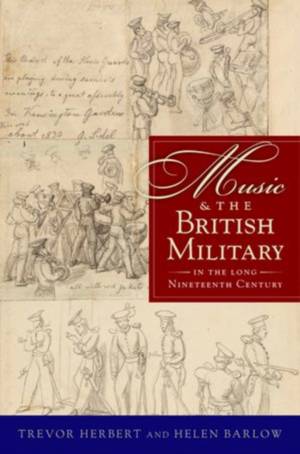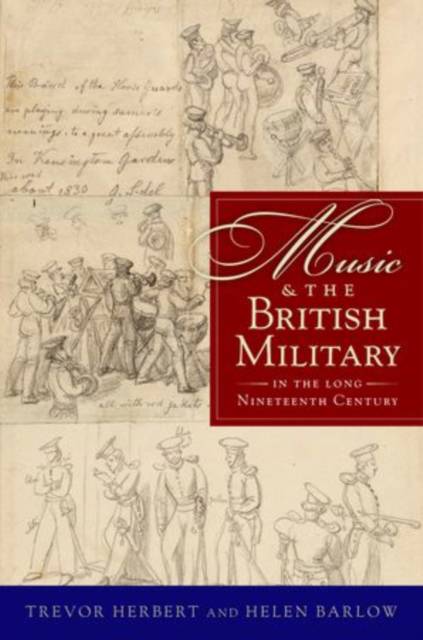
- Afhalen na 1 uur in een winkel met voorraad
- Gratis thuislevering in België vanaf € 30
- Ruim aanbod met 7 miljoen producten
- Afhalen na 1 uur in een winkel met voorraad
- Gratis thuislevering in België vanaf € 30
- Ruim aanbod met 7 miljoen producten
Zoeken
€ 225,95
+ 451 punten
Omschrijving
Although military music was among the most widespread forms of music making during the nineteenth-century, it has been almost totally overlooked by music historians. Music & the British Military in the Long Nineteenth Century however, shows that military bands reached far beyond the official ceremonial duties they are often primarily associated with and had a significant impact on wider spheres of musical and cultural life.
Beginning with a discussion of the place of the military in civilian and social life, authors Trevor Herbert and Helen Barlow plot the story of military music from its sponsorship by military officers to its role as an expression of imperial force, which it took on by the end of the nineteenth century. Herbert and Barlow organize their study around three themes: the use of military status to extend musical patronage by the officer class; the influence of the military on the civilian music establishments; and an incremental movement towards central control of military music making by governments throughout the world. In so doing, they show that military music impacted everything from the configuration of the music profession in the major metropolitan centers, to the development of wind instruments throughout the century, to the emergence of organized amateur music making. A much needed addition to the scholarship on nineteenth century music, Music & the British Military in the Long Nineteenth Century is an essential reference for music, cultural and military historians, the social history of music and nineteenth century studies.
Beginning with a discussion of the place of the military in civilian and social life, authors Trevor Herbert and Helen Barlow plot the story of military music from its sponsorship by military officers to its role as an expression of imperial force, which it took on by the end of the nineteenth century. Herbert and Barlow organize their study around three themes: the use of military status to extend musical patronage by the officer class; the influence of the military on the civilian music establishments; and an incremental movement towards central control of military music making by governments throughout the world. In so doing, they show that military music impacted everything from the configuration of the music profession in the major metropolitan centers, to the development of wind instruments throughout the century, to the emergence of organized amateur music making. A much needed addition to the scholarship on nineteenth century music, Music & the British Military in the Long Nineteenth Century is an essential reference for music, cultural and military historians, the social history of music and nineteenth century studies.
Specificaties
Betrokkenen
- Auteur(s):
- Uitgeverij:
Inhoud
- Aantal bladzijden:
- 368
- Taal:
- Engels
Eigenschappen
- Productcode (EAN):
- 9780199898312
- Verschijningsdatum:
- 2/08/2013
- Uitvoering:
- Hardcover
- Formaat:
- Genaaid
- Afmetingen:
- 157 mm x 241 mm
- Gewicht:
- 635 g

Alleen bij Standaard Boekhandel
+ 451 punten op je klantenkaart van Standaard Boekhandel
Beoordelingen
We publiceren alleen reviews die voldoen aan de voorwaarden voor reviews. Bekijk onze voorwaarden voor reviews.











